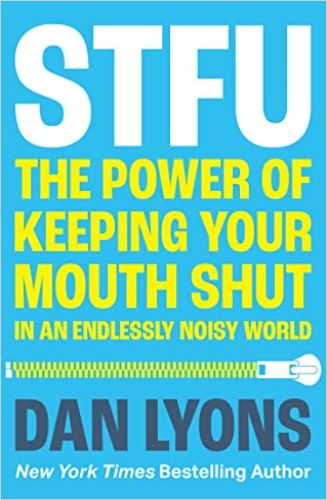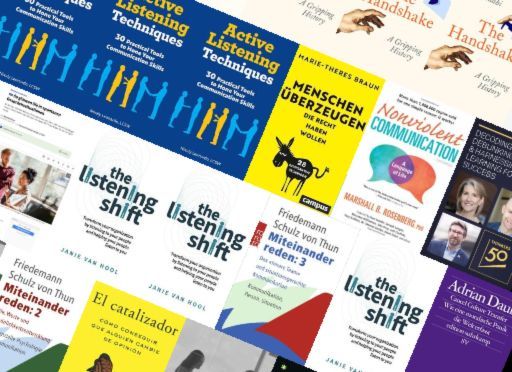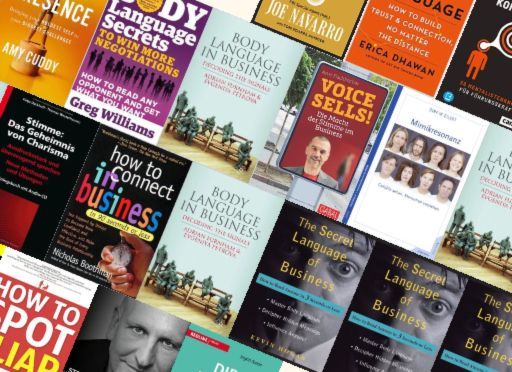People who talk too much – humanity’s compulsive talkers, windbags, chatterboxes and motormouths – annoy listeners, alienate friends and frequently sabotage their careers, relationships and well-being. Journalist Dan Lyons takes a deep dive into overtalking, helping you to understand the drivers of “talkaholism” – and how you can tame your tongue.

Hitting Mute on a Motormouth
Overtalkers are everywhere. Do you have a pesky colleague who bores people with trivial details? Or do you know someone who constantly interrupts conversations to share unsolicited personal opinions? Maybe you yourself are an overtalker.
Dan Lyons admits he is a recovering overtalker: He would speak too much and out of turn, blurt inappropriately, and share his opinion, whether it was solicited or not. As a writer, being a motormouth sometimes worked in his favor: Journalists can often get away with stating unwelcome truths, and Lyons’s sense of humor, combined with a quick tongue, led to a gig writing for the HBO comedy Silicon Valley. But when he pursued a marketing role for a software start-up, his inability to bite his tongue cost him his job – along with an estimated $8 million in stock options.
We live in a world that doesn’t just encourage overtalking but practically demands it, where success is measured by how much attention we can attract.
Lyons began to see his overtalking as an addiction that was interfering with his ability to live a satisfying life. He turned his journalistic skills to learning about why people talk too much, what it costs them and how they can gain control of a mouth that seems to have a mind of its own.
Silence Is Golden
Lyons offers a frank, plain-speaking look at compulsive talking. He describes a taxonomy of overtalkers: the egoists, who seem to think their ideas are worth more than anyone else’s; the nervous talkers, who prattle on as a way to soothe social anxiety; the ruminators, who think out loud; the blurters, who lack a filter; and the blabbers, who repeat the same boring stories again and again.
Lyons doesn’t mince his words, and for readers who feel the shoe fits, his candor might come across as a little too sharp-tongued. But Lyons’s humility – he hardly lets a page go by without confessing his own speech sins – helps to soften his message. And his careful cataloging of the costs of “talkaholism” should give even the most inveterate overtalker reasons to pause.
The fewer words you use, the more impact each one has.
Those costs, Lyons says, include damaging your prospects for promotions at work, reducing your likability, harming your relationships, affecting your mental health and even shortening your life. Overtalking leads to anxiety, broken social ties and poor communication when it counts.
Lyons cites research supporting the value of silence. At work, speaking less means listening more and, often, receiving helpful feedback. Lyons describes how corporate norms have shifted over the years so that ego-driven overtalkers no longer enjoy an advantage. Instead, a calm professional demeanor, Lyons says, can give an impression of quiet competence, self-awareness and humility.
For couples, Lyons notes, spending time in silence together forges a closer connection, and the ability to enjoy being silent while continuing to feel bonded is considered a marker of a healthy relationship. Making room for silence might even help you fall in love, he suggests. Lyons describes a 1967 study in which subjects, who were all strangers to one another, asked each other a series of 36 progressively intimate questions and then silently stared into each other’s eyes for four minutes. According to the study’s authors, this combination of verbal communication and silent communion caused the strangers to fall in love.
Our noisy culture believes in talking. We talk things out. We talk things over. We talk things through. And how’s that working out for us?
Parents should employ the power of silence too, Lyons suggests. Instead of feeling compelled to entertain their children constantly, parents should allow kids space and time to play on their own, to solve problems independently and to learn from small failures.
Speak Not
Lyons suggests five steps to quieting an overactive voice box – what he calls the “shut the f*ck up” (STFU) method:
- Exercise your right to remain silent – “When possible,” Lyons advises, “say nothing….Pretend words are money, and spend them wisely.”
- Know the power of pausing – Lyons describes Ruth Bader Ginsberg’s habit of inserting long pauses between her sentences as she carefully contemplated what she would say next. The same practice can help a blabbermouth turn down the volume.
- Online, just say no to posting – Social media platforms are designed to get people addicted to oversharing, Lyons says, and users should fight back against the compulsion to post every thought online.
- Sit in silence – Lyons advises giving your brain regular mental retreats from the constant noise of information overload. Schedule periods where you switch off your devices and enjoy uninterrupted silence. Lyons cites research that found a link between silence and brain cell generation.
- Learn to listen – Practice the skill of blocking out distractions so you can pay attention to, hear and absorb what other people are saying.
Lyons warns that applying the STFU method will feel exhausting at first, but he promises it will deliver benefits: You’ll feel more at peace and in control of your impulses, he says. Your relationships will improve, because you’ll learn more about the people you love. And when you do less unnecessary talking, you’ll have more time to devote to having deep, meaningful conversations – the kind of conversations that, according to research Lyons describes, might well hold the key to a satisfying life.
Enough Said
In breezy, accessible prose, Lyons offers actionable insights backed up by solid behavioral science to help readers communicate more intentionally and gain the benefits of more meaningful conversations.
For chatterboxes, windbags and mansplainers, gaining self-awareness that a problem exists might be the hardest part. Those who want to live a calmer, more peaceful and satisfying life might find relief just a moment of silence away. Lyons shows there’s power in quietude, and he illustrates how to access it. His book might just hold the panacea for a world obsessed with talk.












